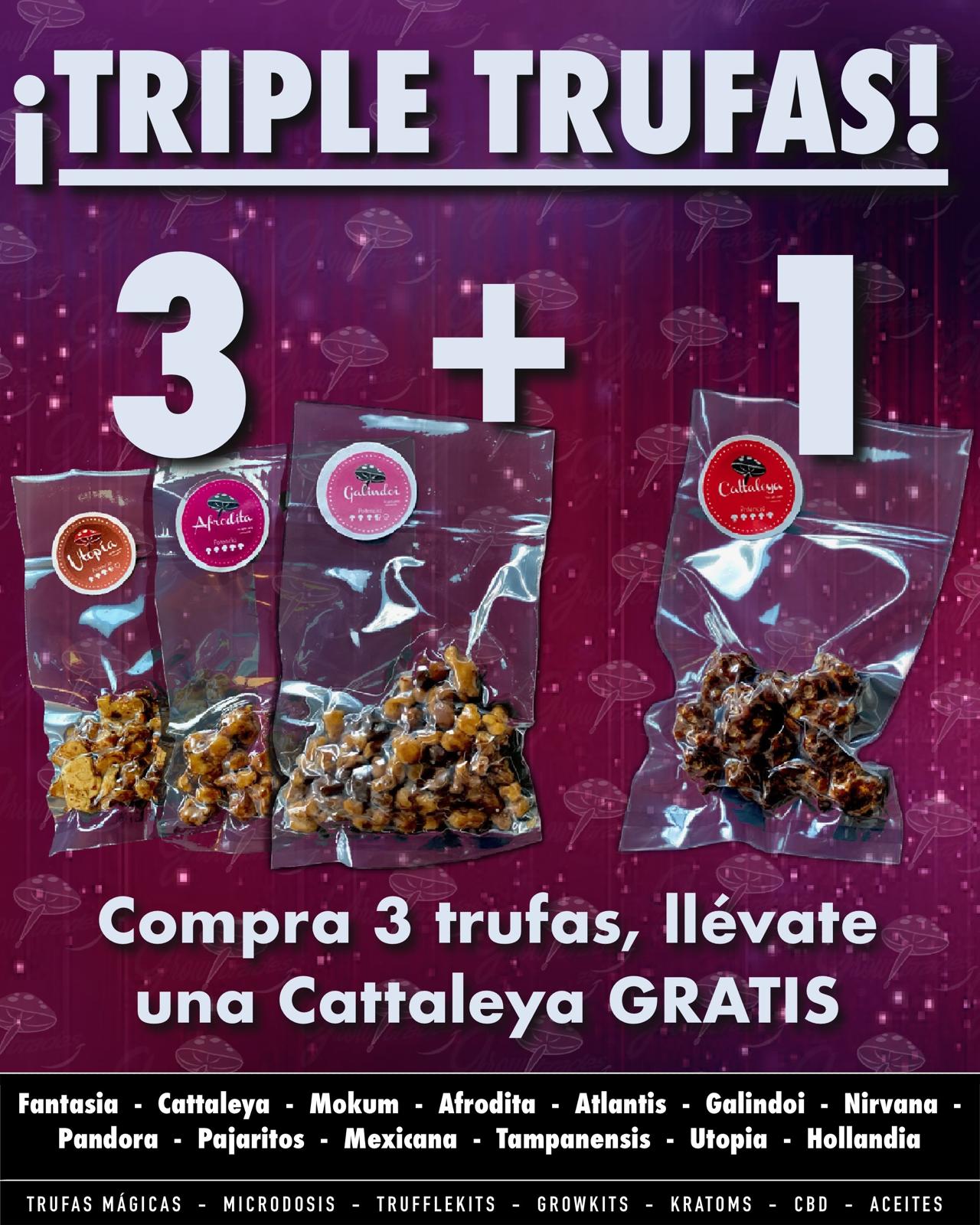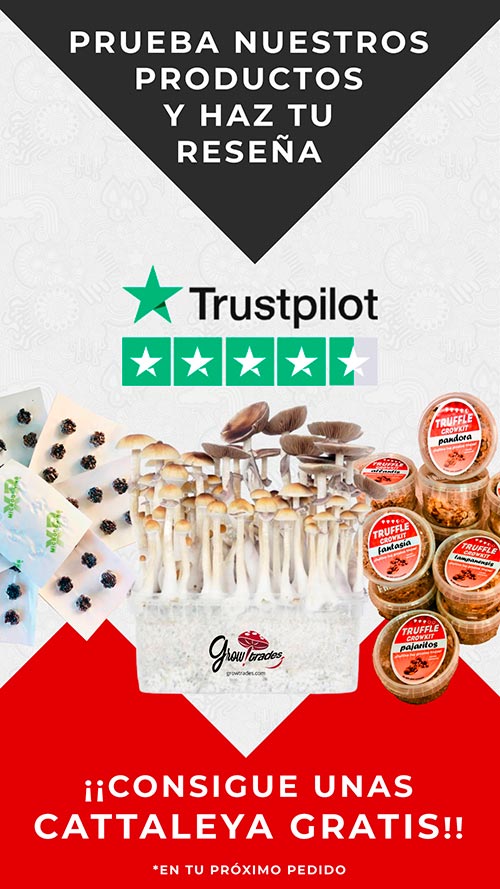No products
Product successfully added to your shopping cart
There are 0 items in your cart. There is 1 item in your cart.
* One gift for each order







Categories
Legal status

Growtrades.com sells products exclusively for ornamental use, botanical study of species or for collections. The products sold on this website are not fit for human consumption.
The customs that the planet's indigenous tribes make the products described in this web site are for informational purposes only. At no time did we encourage the consumption of these products, only the knowledge of them.
Growtrades.com is not responsible for any misuse that may be given to any of the products sold on this website.
ARE LEGAL MAGIC TRUFFLES?
The magic truffles and Grow Kits are legal products. We wouldn´t sell our products if they were not legal. Many people are curious to know more about legality of these products. Therefore, we approached a lawyer to confirm the legal status of both products.
Our lawyer is the expert in the topic of drugs and prohibited plants. Here we´re attaching the complete statement written by our lawyer.
Dear Sirs,
Answering your questions about the legal status of your product sclerotium Tampenensis, the magic truffle, I can inform you as follows. Sclerotium Tampenensis is the subterranean substratum of the mushroom Tampanensis. Sclerotium Tampanensis is in many countries, among The Netherlands, freely available. Sclerotium Tampenensis is not under control of any international Convention like the 1971 Convention on Psychotropic Substances. This is once again confirmed in 2010 by the International Narcotics Control Board: the watchdog for the United Nations drug policy.
The Netherlands
Sclerotium Tampenensis or magic truffle is the subterranean substratum of the mushroom Tampanensis. Sclerotium Tampenensis is freely available in The Netherlands.
On December 1, 2008 a new Ministerial Decree made the hallucinogenic mushroom punishable in The Netherlands. This happened by introducing a considerable amount of specific named mushrooms on the official Schedules of controlled substances of the Dutch Opium Act. One of these newly controlled mushrooms is the Tampanensis. However, the magic truffle itself is not a mushroom. It is only the subterranean substratum of the Tampanensis from which the mushroom can grow.

This view is confirmed by scientists like Thom Kuyper, Professor Fungal Ecology and Diversity at the University Wageningen. The truffle must be distinguished from the mushroom. Additionally, the principle of legality is fundamental to criminal law. This principle guarantees that nothing is a crime unless it is clearly forbidden in a law. As a consequence the court applying criminal law shall never interpret a penal provision extensively. The same goes for the truffle. Because the truffle is scientifically distinguished from the mushroom and not explicitly mentioned on the official Schedules of controlled substances of the Dutch Opium Act, the principle of legality prohibits defining them as illegal. This was on February 9, 2009 once more explicitly confirmed by the Dutch Minister of Health in Parliament.
International
The truffle or Sclerotium Tampenensis is neither under control of any international Convention like the 1971 Convention on Psychotropic Substances. This convention never intended to impose control of biological substances from which psychotropic substances could be obtained (Commentary on the Convention on Psychotropic Substances, Vienna, 21 February 1971, United Nations New York, 1976/CN/7/589, chapter Reservations, art. 32 PSV (sub 5, p. 385).
In a United Nations Conference for the adoption of a protocol on psychotropic substances, it was discussed psychotropic substances can be found in a large diversity of living organisms, among which are mushrooms, cacti, fishes, and nuts (tenth plenary meeting at Vienna on 2 February 1971, discussing article 6 of the Draft Convention, Records 1971, Volume II, p. 38/39). Any endeavor to control this could result in the extinction and annihilation of a currently unpredictable diversity of plants and animals and would have unforeseeable consequences for food laws. The authors of the Convention on Psychotropic Substances warned against those exact consequences
This interpretation of the Convention is still endorsed by the INCB. This is the International Narcotics Control Board: the watchdog of the United Nations drug policy. Already on September 13, 2001, the Secretary van de INCB, Herbert Schaepe wrote to the Dutch Senior Inspector for Health Care:
As you are aware, mushrooms containing the above substance are collected and abused for their hallucinogenic effects. As a matter of international law, no plants (natural material) containing psilocine and psilocybine are at present controlled under the Convention on Psychotropic Substances of 1971. Consequently, preparations made of these plants are not under international control and, therefore, not subject to any of the articles of the 1971
In summary; although psilocine and psylocybine itself are controlled by the Convention, this does not imply that the plants containing these substances by nature are also under control of the Convention. This opinion of the INCB is confirmed in her last report of 2010, in which is written:
— although some active stimulant or hallucinogenic ingredients contained in certain plants are controlled under the 1971 Convention, no plants are currently controlled under that Convention or under the 1988 Convention. Preparations (e.g. decoctions for oral use) made from plants containing those active ingredients are also not under international control. (—)
Examples of such plants or plant material include magic mushrooms (Psilocybe), which contain psilocybine and psilocine (Report of the International Narcotics Control Board for 2010, E/INCB/2010/1, published on March 2, 2011, recommendations 284 and 285).

Other countries
The Dutch courts refer to the Convention on Psychotropic Substances in its interpretation of the Dutch legislation. As a result, fresh mushrooms were not under control of the Dutch Drug Act until December 1, 2008. After all, for penalization new national legislation was needed. The INCB expresses the same view in her report of 2010, where it recommends member states experiencing problems with regard to persons abusing plant material because of the hallucinogenic ingredients it contains, to consider controlling such plants at the national level. The possession of such plants is not punishable unless a prior law says so.
The principle of legality constitutes a fundamental human right protected by international conventions that also has to be respected by the member states of the United Nations. This implies that hallucinogenic mushrooms are legal unless national legislators or courts have explicitly penalized them. The same goes for truffles, which are scientifically distinguished from mushrooms. The Dutch example shows that bringing a specific hallucinogenic mushroom under the control of the Drug Act, does not imply that also the subterranean substratum of that mushroom, the magic truffle, is controlled by that Act.
For that reason it is advisable to carefully check in every country where you want to buy, sell or possess truffles, if these are explicitly made punishable by national laws or other regulations. As long as this is not the case, they must be assumed freely marketable.
I trust this information is sufficient for your purposes.
Sincerely yours,
Adèle G. van der Plas
Bakker Schut & van der Plas Advocaten
Prinsengracht 708
1017 LA Amsterdam
